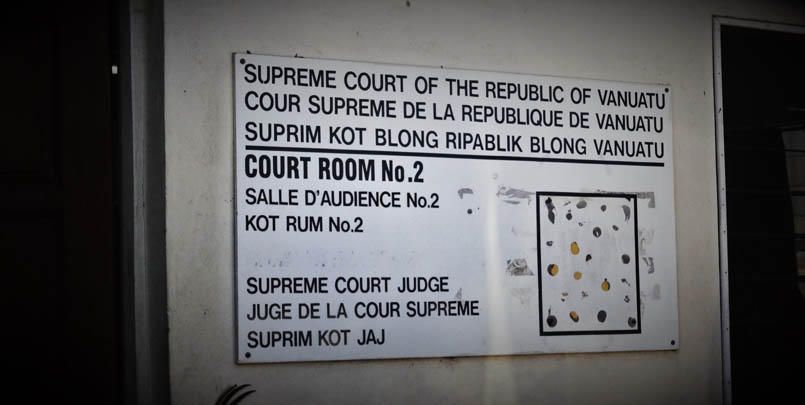
The urgent constitutional case challenging President Baldwin Lonsdale dissolution of parliament has been dismissed by Justice Dudley Aru of the Vanuatu Supreme Court.
The application was filed by former opposition members based on seven points that were all dismissed this morning.
The application claimed that the president’s action to dissolve parliament on 24 October was unconstitutional, null and void and of no effect because it was based on advice from a Council of ministers that is composed of convicted members, and lacked proper advice from the attorney general and the director of finance.
The former Opposition members also claimed that their constitutional rights were infringed when parliament was dissolved because the acting speaker had summoned parliament to meet, and a motion of no-confidence was prepared and ready to be lodged when parliament was dissolved.
They’ve also asked the court to summon parliament to meet on 14th December in line with the summoned issued by the then acting speaker Samsen Samson.
In his ruling this morning, Justice Aru maintained and reiterated the judgments of previous court of appeals on the same issue of dissolution, particularly that:
“Article 28 (3) vests a wide and extensive discretion in the President. There is a heavy burden on anyone who asserts that there has been an improper exercise of that discretion. We are not satisfied that the Petitioners discharged that burden in the Supreme Court. Where the Constitution provides such a wide and unfettered discretion it is necessary to show that in legal terms the decision taken by the President was irrational and unsustainable. That has not been established on the evidence presented.”
He therefore ruled that the Council of Ministers was lawfully constituted when it resolved on 14th October 2015 to advise the president to dissolve parliament. This was evident through the sworn statement of the secretary general of the CoM, Nadine Alatoa that 10 members were present plus two officials including herself and the acting attorney general.
He also accepted that the CoM advice was properly relayed to the president by the prime minister on the 16th of October 2015 and that the president had exercise his discretionary powers upon the advice from the CoM when he dissolved parliament.
There was also the claim that the president may have been influenced by the pig exchange that took place between himself and the prime minister prior to dissolution of parliament. But the judge accepted proposal put to him by the defense counsels that said that was not significant as it was a normal custom gesture.
Justice Aru said because the president’s action was lawful he saw it not necessary to dwell or consider other matters relating to the role of parliament at the time, including the rights of the MP-elect Kenneth Natapei, and the rights of MPs to debate the appropriation bill because parliament had been dissolved.
He then urged counsels that should they intend to appeal his decision, that they examine that within 48 hours because of its urgency.
